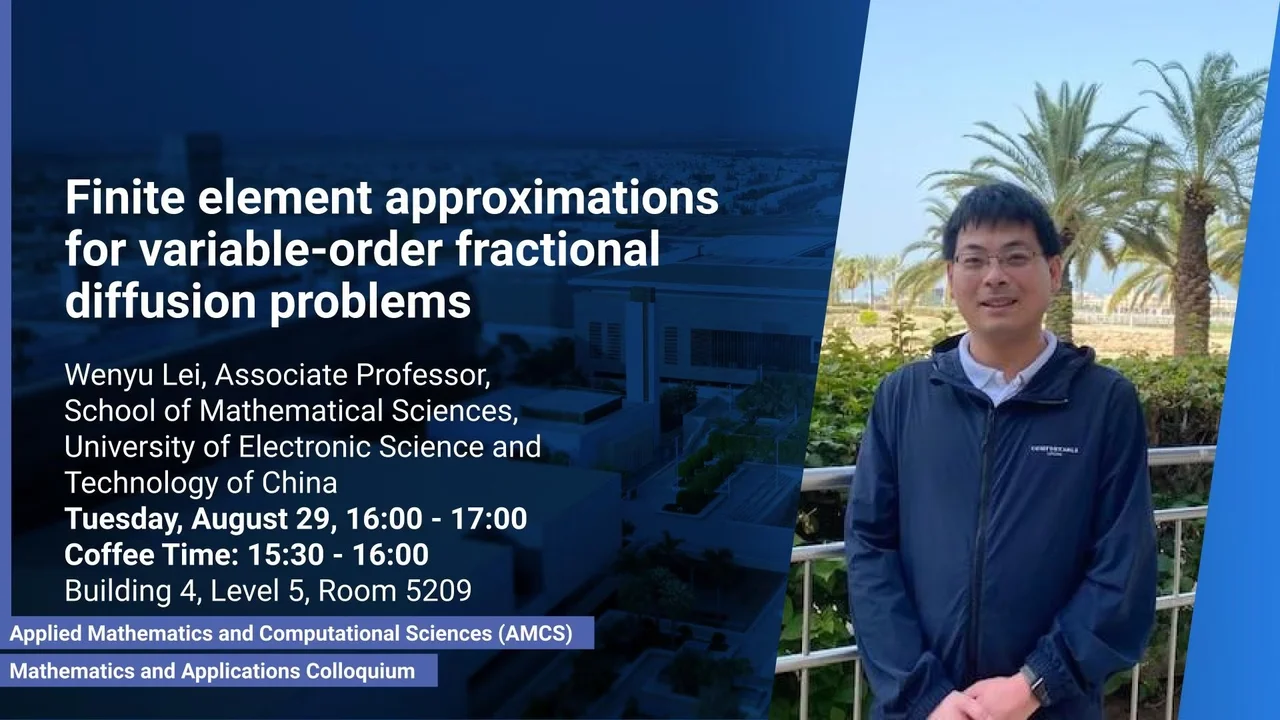
Finite element approximations for variable-order fractional diffusion problems
- Prof. Wenyu Lei, University of Electronic Science and Technology of China
B4 L5 R5209
We propose a finite element scheme for fractional diffusion problems with varying diffusivity and fractional order. A number of challenges are encountered when discretizing such problems. The first is the heterogeneous kernel singularity in the fractional integral operator. The second comes from the dense discrete operator with its quadratic growth in memory footprint and arithmetic operations. To address these challenges, we propose a strategy that decomposes the system matrix into three components. The first is a sparse matrix that handles the singular near-field separately and is computed by adapting singular quadrature techniques available for the homogeneous case to the case of spatially variable order.
Overview
Abstract
We propose a finite element scheme for fractional diffusion problems with varying diffusivity and fractional order. A number of challenges are encountered when discretizing such problems. The first is the heterogeneous kernel singularity in the fractional integral operator. The second comes from the dense discrete operator with its quadratic growth in memory footprint and arithmetic operations. To address these challenges, we propose a strategy that decomposes the system matrix into three components. The first is a sparse matrix that handles the singular near-field separately and is computed by adapting singular quadrature techniques available for the homogeneous case to the case of spatially variable order. The second component handles the remaining smooth part of the near-field as well as the far-field and is approximated by a hierarchical ${H}^{2}$ matrix that maintains linear complexity in storage and operations. The third component handles the effect of the global mesh at every node and is written as a weighted mass matrix whose density is computed by a fast-multipole type method. The resulting algorithm has therefore overall linear space and time complexity. In this talk, analysis of the consistency of the stiffness matrix is provided and numerical experiments are conducted to illustrate the convergence and performance of the proposed algorithm.
Brief Biography
Wenyu Lei received his Ph.D in Mathematics in 2018 from Texas A&M University. After his postdoctoral studies at International School for Advanced Studies in Trieste, Italy, he worked as a Visiting Scientist at KAUST from 2022 to 2023. Starting from early 2023 he joined the School of Mathematical Sciences, University of Electronic Science and Technology of China as an Associate professor. His current research focuses on the finite element approximations of fractional diffusion problems.
